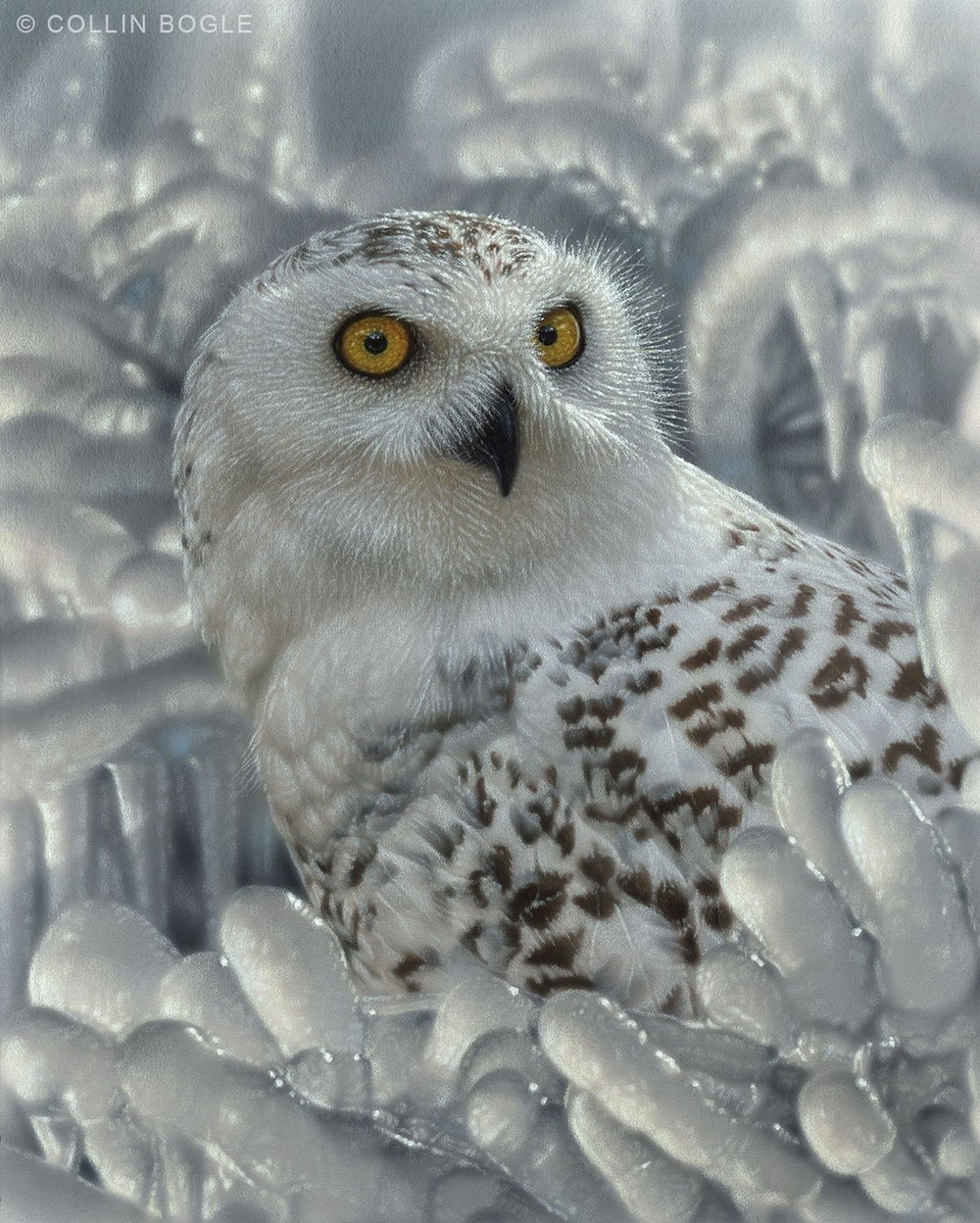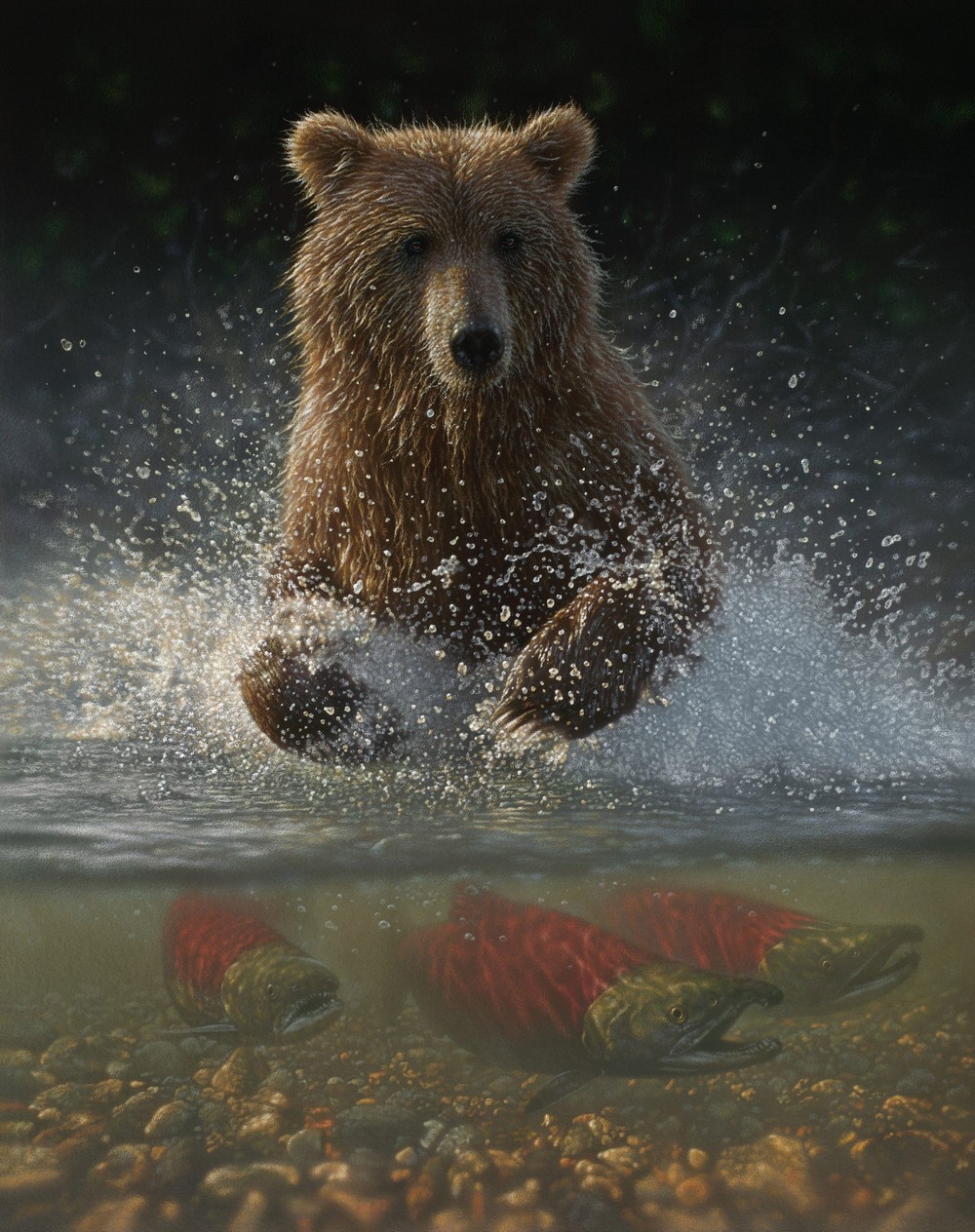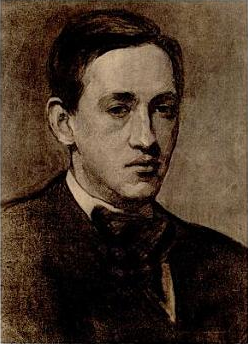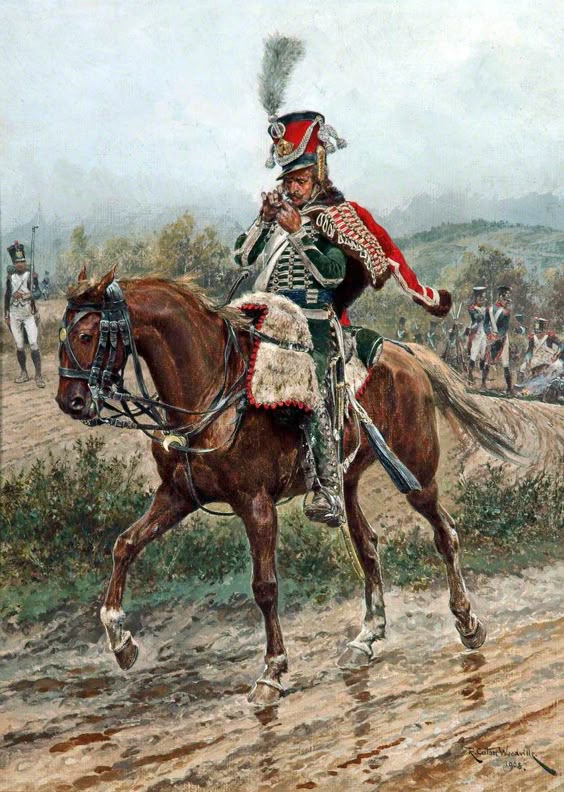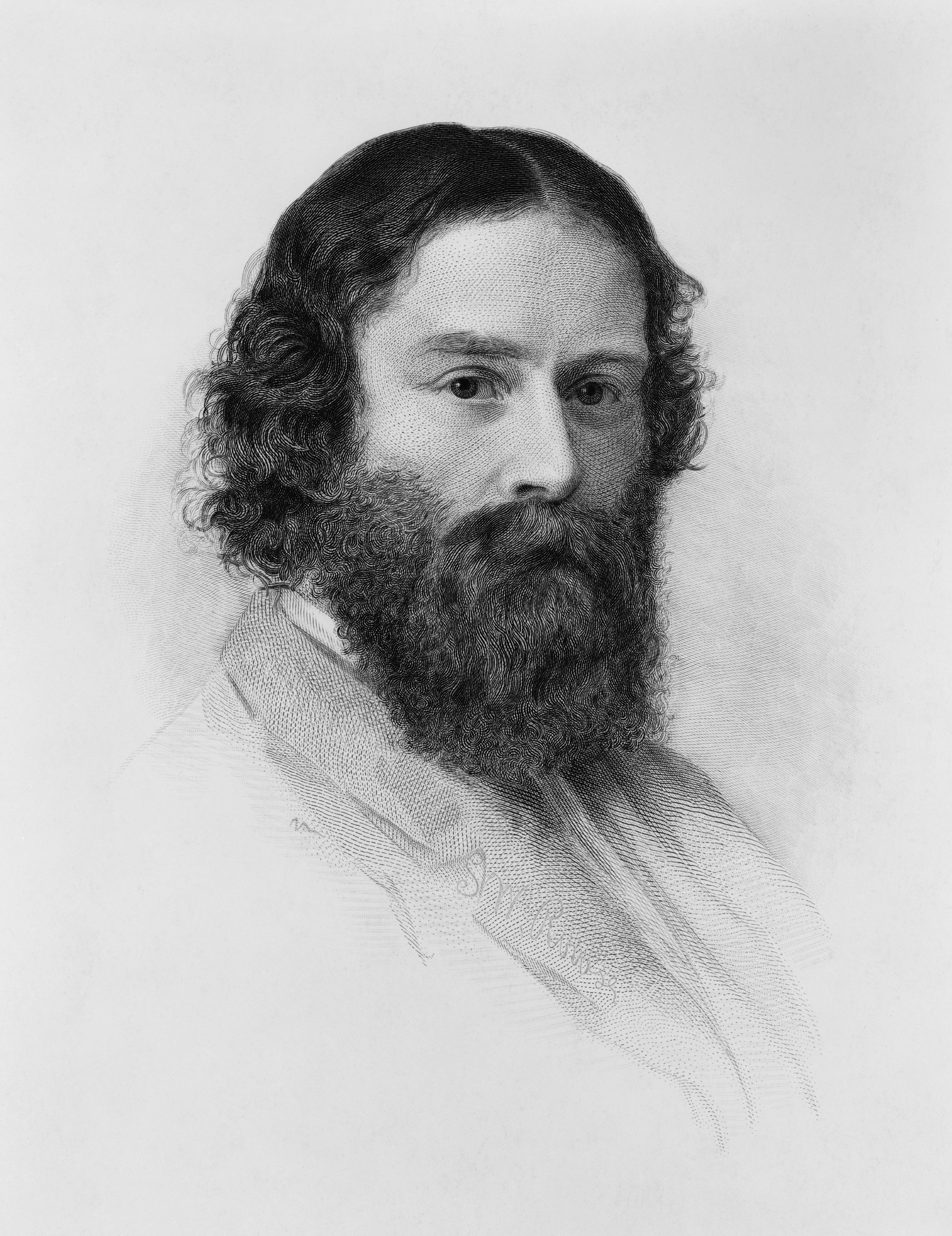
James
Russell Lowell ( 1819 – 1891) was an American Romantic poet, critic,
editor, and diplomat. He is associated with the Fireside Poets, a group
of New England writers who were among the first American poets that
rivaled the popularity of British poets. These writers usually used
conventional forms and meters in their poetry, making them suitable for
families entertaining at their fireside.
THE CHIEF MATE
My
first glimpse of Europe was the shore of Spain. Since we got into the
Mediterranean, we have been becalmed for some days within easy view of
it. All along are fine mountains, brown all day, and with a bloom on
them at sunset like that of a ripe plum. Here and there at their feet
little white towns are sprinkled along the edge of the water, like the
grains of rice dropped by the princess in the story. Sometimes we see
larger buildings on the mountain slopes, probably convents. I sit and
wonder whether the farther peaks may not be the Sierra Morena (the rusty
saw) of Don Quixote. I resolve that they shall be, and am content.
Surely latitude and longitude never showed me any particular respect,
that I should be over scrupulous with them.
But
after all, Nature, though she may be more beautiful, is nowhere so
entertaining as in man, and the best thing I have seen and learned at
sea is our Chief Mate. My first acquaintance with him was made over my
knife, which he asked to look at, and, after a critical examination,
handed back to me, saying, "I shouldn't wonder if that 'ere was a good
piece o' stuff." Since then he has transferred a part of his regard for
my knife to its owner. I like folks who like an honest bit of steel, and
take no interest whatever in "your Raphaels, Correggios, and stuff."
There is always more than the average human nature in the man who has a
hearty sympathy with iron. It is a manly metal, with no sordid
associations like gold and silver. My sailor fully came up to my
expectation on further acquaintance. He might well be called an old salt
who had been wrecked on Spitzbergen before I was born. He was not an
American, but I should never have guessed it by his speech, which was
the purest Cape Cod, and I reckon myself a good taster of dialects. Nor
was he less Americanized in all his thoughts and feelings, a singular
proof of the ease with which our omnivorous country assimilates foreign
matter, provided it be Protestant, for he was a man ere he became an
American citizen. He used to walk the deck with his hands in his
pockets, in seeming abstraction, but nothing escaped his eyes. How he
saw I could never make out, though I had a theory that it was with his
elbows. After he had taken me (or my knife) into his confidence, he took
care that I should see whatever he deemed of interest to a landsman.
Without looking up, he would say, suddenly, "There's a whale blowin'
clearn up to win'ard," or, "Them's porpises to leeward: that means
change o' wind." He is as impervious to cold as a polar bear, and paces
the deck during his watch much as one of those yellow hummocks goes
slumping up and down his cage. On the Atlantic, if the wind blew a gale
from the northeast, and it was cold as an English summer, he was sure to
turn out in a calico shirt and trousers, his furzy brown chest half
bare, and slippers, without stockings. But lest you might fancy this to
have chanced by defect of wardrobe, he comes out in a monstrous
pea-jacket here in the Mediterranean, when the evening is so hot that
Adam would have been glad to leave off his fig-leaves. "It's a kind o'
damp and unwholesome in these ere waters," he says, evidently regarding
the Midland Sea as a vile standing pool, in comparison with the bluff
ocean. At meals he is superb, not only for his strengths, but his
weaknesses. He has somehow or other come to think me a wag, and if I ask
him to pass the butter, detects an occult joke, and laughs as much as
is proper for a mate. For you must know that our social hierarchy on
shipboard is precise, and the second mate, were he present, would only
laugh half as much as the first. Mr. X. always combs his hair, and works
himself into a black frock coat (on Sundays he adds a waist coat)
before he comes to meals, sacrificing himself nobly and painfully to the
social proprieties. The second mate, on the other hand, who eats after
us, enjoys the privilege of shirt-sleeves, and is, I think, the happier
man of the two. We do not have seats above and below the salt, as in old
time, but above and below the white sugar. Mr. X. always takes brown
sugar, and it is delightful to see how he ignores the existence of
certain delicates which he considers above his grade, tipping his head
on one side with an air of abstraction so that he may seem not to deny
himself, but to omit helping himself from inadvertence, or absence of
mind. At such times he wrinkles his forehead in a peculiar manner,
inscrutable at first as a cuneiform inscription, but as easily read
after you once get the key. The sense of it is something like this: "I,
X., know my place, a height of wisdom attained by few. Whatever you may
think, I do not see that currant jelly, nor that preserved grape.
Especially a kind Providence has made me blind to bowls of white sugar,
and deaf to the pop of champagne corks. It is much that a merciful
compensation gives me a sense of the dingier hue of Havana, and the
muddier gurgle of beer. Are there potted meats? My physician has ordered
me three pounds of minced salt-junk at every meal." There is such a
thing, you know, as a ship's husband: X. is the ship's poor relation.
As
I have said, he takes also a below-the-white-sugar interest in the
jokes, laughing by precise point of compass, just as he would lay the
ship's course, all yawing being out of the question with his scrupulous
decorum at the helm. Once or twice I have got the better of him, and
touched him off into a kind of compromised explosion, like that of damp
fireworks, that splutter and simmer a little, and then go out with
painful slowness and occasional relapses. But his fuse is always of the
unwillingest, and you must blow your match, and touch him off again and
again with the same joke. Or rather, you must magnetize him many times
to get him en rapport with a jest. This once accomplished, you have him,
and one bit of fun will last the whole voyage. He prefers those of one
syllable, the a-b abs of humor. The gradual fattening of the steward, a
benevolent mulatto with whiskers and earrings, who looks as if he had
been meant for a woman, and had become a man by accident, as in some of
those stories by the elder physiologists, is an abiding topic of
humorous comment with Mr. X. "That 'ere stooard," he says, with a brown
grin like what you might fancy on the face of a serious and aged seal,
"'s agittin' as fat's a porpis. He was as thin's a shingle when he come
aboord last v'yge. Them trousis'll bust yit. He don't darst take 'em off
nights, for the whole ship's company couldn't git him into 'em agin."
And then he turns aside to enjoy the intensity of his emotion by
himself, and you hear at intervals low rumblings, an indigestion of
laughter. He tells me of St. Elmo's fires, Marvell's corposants, though
with him the original corpos santos has suffered a sea change, and
turned to comepleasants, pledges of fine weather. I shall not soon find a
pleasanter companion. It is so delightful to meet a man who knows just
what you do not. Nay, I think the tired mind finds something in plump
ignorance like what the body feels in cushiony moss. Talk of the
sympathy of kindred pursuits! It is the sympathy of the upper and nether
mill-stones, both forever grinding the same grist, and wearing each
other smooth. One has not far to seek for book-nature, artist-nature,
every variety of superinduced nature, in short, but genuine human-nature
is hard to find. And how good it is! Wholesome as a potato, fit company
for any dish. The free masonry of cultivated men is agreeable, but
artificial, and I like better the natural grip with which manhood
recognizes manhood.
X.
has one good story, and with that I leave him, wishing him with all my
heart that little inland farm at last which is his calenture as he paces
the windy deck. One evening, when the clouds looked wild and whirling, I
asked X. if it was coming on to blow. "No, I guess not," said he;
"bumby the moon'll be up, and scoff away that 'ere loose stuff." His
intonation set the phrase "scoff away" in quotation-marks as plain as
print. So I put a query in each eye, and he went on. "Ther' was a Dutch
cappen onct, an' his mate come to him in the cabin, where he sot takin'
his schnapps, an' says, 'Cappen, it's agittin' thick, an' looks kin' o'
squally, hedn't we's good's shorten sail?' 'Gimmy my alminick,' says the
cappen. So he looks at it a spell, an' says he, 'The moon's due in
less'n half an hour, an' she'll scoff away ev'ythin' clare agin.' So the
mate he goes, an' bumby down he comes agin, an' says, 'Cappen, this
'ere's the allfiredest, powerfullest moon 't ever you did see. She's
scoffed away the main-togallants'l, an' she's to work on the foretops'l
now. Guess you'd better look in the alminick agin, and fin' out when
this moon sets.' So the cappen thought 'twas 'bout time to go on deck.
Dreadful slow them Dutch cappens be." And X. walked away, rumbling
inwardly, like the rote of the sea heard afar.




